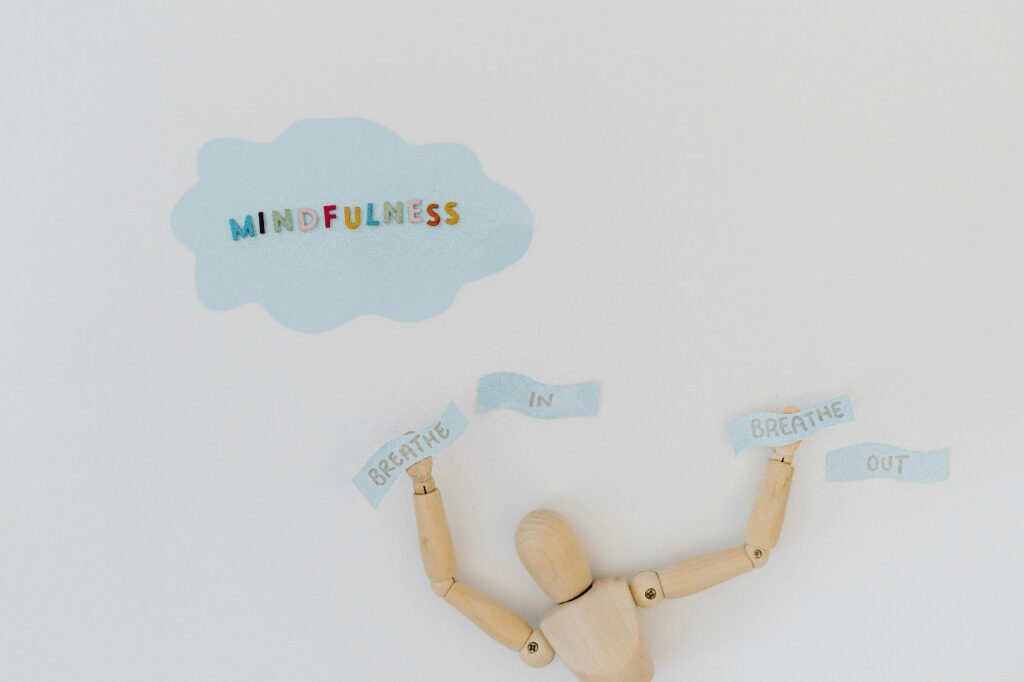
The Vitality Study conducted by Cigna Health Care reveals a concerning trend: Kenya has been named the world leader in burnout for the second year, with 100% of respondents reporting burnout—significantly higher than the global average of 94%.
Even more striking is that nearly 73% of Kenyans cite the high cost of living as the primary source of their stress far exceeding the global average of 47%. Furthermore, 86% of Kenyans say the cost of living makes it too expensive to maintain good health, compared to just 38% globally.
These statistics are a wake-up call to the growing impact of stress on our daily lives. But there is a way forward. Mindfulness practices offer a powerful solution to reduce stress, improve emotional well-being, and regain balance in an increasingly hectic world. Whether it’s through focused breathing, mindful movement, or simple moments of reflection, these practices can help you manage the pressures of modern life more effectively.
In this post, we’ll explore practical mindfulness techniques that can help you reduce stress and improve your overall happiness. Discover how small changes in your daily routine can lead to big improvements in your mental and physical health.
Why Mindful Living Matters
Life can get so busy and overwhelming sometimes. Between work, family, and all the other things on your plate, it’s easy to feel stressed out. The good news is that mindful living can help you manage all that stress and feel calmer.
Mindful living is about being fully present in the moment and being aware of where you are and what you’re doing. Instead of stressing about the past or future, you focus on what’s happening right now. This simple shift in how you approach life can help you reduce stress and feel more relaxed.
Simple Mindfulness Practices to Reduce Stress
There are small, everyday practices you can do that make a big difference. Let’s dive in.
1. Mindful Breathing
One of the easiest and quickest ways is through breathing. It’s all about slowing down your breath and paying attention to it.
To practice mindful breathing, simply pay attention to your breath as you inhale and exhale. You can do this while standing, although it’s best to be seated or lying down in a comfortable position. You can keep your eyes open, or closed, or partially closed, without focusing on anything specific.
Here’s how you can do it:
- Sit comfortably and close or open your eyes.
- Take a slow, deep breath through your nose, counting to four.
- Hold your breath for a moment.
- Then, slowly breathe out through your mouth, counting to four again.
- Do this for a few minutes. If your mind starts wandering, just gently bring your focus back to your breath. It’s an easy way to calm your body and mind and instantly reduce stress.
2. Mindful Walking
If you like to walk, try making it a mindfulness practice where you feel yourself walking as you walk. Whether around the estate or just heading to the shopping center, focus on each step you take. Feel your feet touching the ground and notice the rhythm of your walk.
You can also pay attention to your surroundings, what you see, hear, or smell, and the people you meet. This brings you into the present moment and helps you feel more relaxed and connected. This can help reduce stress.
3. Mindful Eating
How often do we eat while distracted, watching TV, scrolling through our phones, or thinking about something else? Mindful eating is about slowing down, enjoying your food, and eliminating any distractions.
Next time you eat, take your time and avoid multitasking. Pay attention to how the food tastes, its texture, and how it makes you feel. Eating this way helps you enjoy your food more and can also help you reduce stress by giving you a moment to just relax.
4. Mindful Listening
We don’t always listen to others as fully as we should. We need to give our full attention when they are speaking and understand not just their words but also their emotions and intentions. When you’re talking to someone, really focus on what they’re saying. Don’t think about how you’ll respond, just listen with your full attention.
Mindful listening strengthens your relationships. It can also help reduce stress by making you feel more connected and present in the conversation.
5. Mindful Reflection
Mindful reflection is a deep, meaningful conversation with oneself. It involves paying attention to our inner thoughts, recognizing our responses, and gaining a deeper understanding of our fundamental beliefs and values.
At the end of the day, take a few minutes to reflect on what happened. Think about what went well, what was challenging, and how you’re feeling. You don’t need to overthink it, just take note of what’s on your mind.
Writing it down in a journal is a great way to clear your head and reduce stress before bed. Although finding time for journaling can be challenging, dedicating just a minute or two each day to it can still offer positive effects.
How Mindful Living Helps Reduce Stress
Mindful living doesn’t make stress disappear, but it helps you handle it better. When practicing mindfulness, you start noticing your thoughts and feelings without letting them control you.
Here’s how mindful living helps you reduce stress:
- It calms your mind: By focusing on the present moment, you quiet your anxious thoughts and stop them from spiraling.
- It helps you manage your emotions: Mindfulness makes you aware of your feelings, so you can choose how to respond instead of getting overwhelmed.
- It improves your focus: Staying present helps you focus on what’s right in front of you making tasks feel easier and less stressful.
- It helps you relax: Practicing mindfulness activates your body’s relaxation response, making you feel more at ease and less tense.
Make Mindful Living Part of Your Routine
The great thing about mindful living is that it doesn’t take a lot of time. You can easily fit mindfulness practices into your day. Here’s how to start:
- Start small: Even just five minutes of mindfulness can help.
- Pick one thing to focus on: You don’t have to do everything at once. Choose one practice, like mindful walking, and make it part of your routine.
- Be consistent: The more often you practice mindfulness, the easier it gets. Try to make it a habit every day.
Conclusion
Mindful living is a simple but powerful way to reduce stress and feel more at peace. Life can be chaotic, but taking a moment to slow down and focus on the present can make a big difference. By practicing mindfulness each day, you’ll feel more relaxed, focused, and able to handle whatever life throws your way.
So, take a deep breath, start small, and remember, mindfulness is about being kind to yourself. There’s no need to be perfect, just enjoy the process and see how it makes you feel!
Stay hooked up for content like these and much more. Follow the link below:
